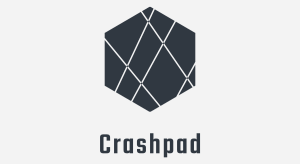Anyone who has ever played a video game can remember a time when they lost everything, whether it was their progress or their virtual assets. Not only is this frustrating to gamers, but it’s also a loss of both time and money that has been invested, sometimes over months or even years. Many of the pain points that gamers and developers face today are related to the way in which the internet’s limitations have forced in-game economies, communities, and ecosystems to develop. For example, gamers are faced with limited options in terms of protecting their virtual assets, and are offered few opportunities for collaboration and transferal of assets across games and platforms. Records of games are centralized and if anything happens, such as the game being shut down, a player’s progress can be wiped out with little-to-no chance of recovery.
Blockchain technology has the potential to change all of this by creating a decentralized gaming ecosystem. This will not only allow for information to be better maintained and secured, but it will also enable virtual currency and assets to be easily traded and protected. By incorporating cryptocurrencies into games, players and developers will have more freedom in both the in-game economy and the community ecosystem that can develop as a result. For example, rather than producing games that operate in silos, developers will be able to produce games that are interconnected via their in-game rewards and currencies. Though there are numerous potential changes that blockchain can bring to the gaming industry, I’ve boiled it down to three main categories that will benefit the most from a transition.
In-Game Security
Blockchain’s immutable ledger can do wonders for the gaming industry in terms of reducing fraud, securing ownership of rewards, and tracking sales and progress in games. Currently, the virtual goods market is rife with fraud; for every legitimate virtual item that is sold and downloaded, 7.5 items are lost to fraud. Blockchain’s ledger and smart contracts, however, will help prevent fraud. In addition to increasing security, using blockchain will allow players to hold on to their rewards in a cold wallet, for example. Therefore, if the game is shut down or hacked, a player’s virtual assets and currencies would still be safe. This allows players to have access to their assets at all times— regardless of what is going on inside the game— and if something does happen within the game, all transactions are recorded on the blockchain ledger, which means everything is traceable.
Gaming Economies
While cryptocurrencies such as Bitcoin led virtual currency to the forefront of the financial industry, this type of currency has been a part of gaming for years with reward systems worked into them. However, gamers earning the virtual currency made in these games have never had the potential to transfer the currency out. In addition, players have been burdened by the fees of virtual access exchanges, transaction fees, and international exchange fees when purchasing assets. By using blockchain, in-game economies will become more lean in the sense that players will be able to trade among themselves and developers will be able to interact directly with players. For example, rather than having to go through an intermediary to push through a transaction, players will be able to use cryptocurrencies to trade virtual items with one another. This eliminates the need for gamers to use fiat currencies to purchase digital items. By moving away from a reliance on intermediaries, transaction fees will decrease significantly.
Community Gaming
An added bonus of inter-player trading is the community of players that can develop to form a more interconnected gaming ecosystem. The current system forces developers to create games that operate in silos as a result of the intermediaries that are required for sales of apps and virtual assets. However, blockchain offers the possibility for developers to use a widely accepted cryptocurrency, which will begin to create an ecosystem. By using a single cryptocurrency, developers will be able to create games in which players can trade among themselves and across games. This, in turn, can create an in-game trading community. In addition, developers will be able to interact with and sell games directly to players via open marketplaces that do not rely on intermediaries such as Steam.
BlockHub: A platform for change
There are already blockchain-based companies that are developing this concept in order to liberate the gaming industry from the restrictions it has forced on gamers and developers alike. One such company is Hyperbridge, which is offering an opportunity through their Blockhub platform for developers to get out from under app stores that often take a large chunk of the profit. BlockHub offers a path to developing and publishing as well as a marketplace for their products that does not rely on the app store.
The BlockHub marketplace, however, differs from traditional app stores in the sense that it allows developers and gamers to interact with each other. Developers will be able to benefit from feedback, while gamers will be able contribute to shaping the games in a way that suits their interests. Blockchain’s effects will send ripples across the gaming industry by doing what the internet couldn’t or wouldn’t: it will foster communities within and across games, gamers, and developers, which will ultimately allow for less restrictive gaming practices.



